
DAY ONE ONLY - Inform USA Conference Virtually Yours: Frontline Edition
- Registration Closed
This registration includes single day access for Tuesday October 12th with sessions and activities aimed at expanding the skills and knowledge of frontline professionals and their supervisors. This event is perfect for individuals who fill or support roles that relate to Community Resource Specialists and Database Curators.
Any single day registration includes:
- Access to the live sessions and session recordings and materials that will be held on the day you choose
- Virtual Swag Bag
-
Contains 3 Component(s), Includes Credits
What does it mean to be trauma-informed in our communication? How do we communicate in ways that acknowledge where folks are (stressed out, frustrated, in crisis, angry) and then encourage them to take a step with us toward finding solutions. We'll talk about the invisible "noise" that's present in all of our communication efforts and then discuss approaches to overcoming that noise in ourselves and our clients.
(1 hour session)
What does it mean to be trauma-informed in our communication? How do we communicate in ways that acknowledge where folks are (stressed out, frustrated, in crisis, angry) and then encourage them to take a step with us toward finding solutions. We'll talk about the invisible "noise" that's present in all of our communication efforts and then discuss approaches to overcoming that noise in ourselves and our clients.
Key Takeaways:
- Understand the relationship between communication "noise", personal experience, stress and trauma
- Identify when you and/or a client might be outside of their Window of Tolerance
- Learn techniques for re-engaging in successful communication
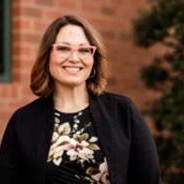
Leanne Lytle
Director of Community Impact
United Way of Greater Richmond & Petersburg, Richmond, Virginia
Leanne Lytle is Director of Community Impact for United Way of Greater Richmond & Petersburg. Leanne is adept at incorporating resilience strategies into direct programming as well as her own personal and professional relationships. She also supports capacity building of other organizations through board service and consultation. Leanne serves on several local and state level boards and holds a Master of Education from Peabody College of Education at Vanderbilt University. Leanne is passionate about improving the quality and integrity of organizational leadership across sectors because of the deep impact our leadership has on outcomes for our communities, families and, most importantly, children. Leanne has lived in Baltimore, New Orleans, Long Beach (CA), Nashville and now, Richmond, VA with her Disney-obsessed husband and teenage daughter and 2 rambunctious dogs. In her free time, she enjoys being in nature and visiting new places. -
Contains 2 Component(s), Includes Credits
Managing resource data is hard enough – managing resource data that’s being used by multiple organizations for multiple purposes is even more complex! And yet this kind of multi-lateral resource data management is increasingly important for I&Rs. This panel will take a deeper look into unsolved problems of managing resource data used by (or even maintained by) multiple partners and engage participants in discussing tactical approaches and strategic opportunities to find new solutions.
Managing resource data is hard enough – managing resource data that’s being used by multiple organizations for multiple purposes is even more complex! And yet this kind of multi-lateral resource data management is increasingly important for I&Rs. This panel will take a deeper look into unsolved problems of managing resource data used by (or even maintained by) multiple partners and engage participants in discussing tactical approaches and strategic opportunities to find new solutions.
Key Takeaways:
- How can we best manage multiple vocabularies for categorizing services in situations where partners use different taxonomies?
- How can we accommodate different inclusion and exclusion criteria as required by different partners – without creating different databases?
- How can we share updates to records managed by other partners – can we do better than email?
- To what extent should these challenges be addressed by policies and practices, and to what extent do we want or need technology functionality to support such collaboration?
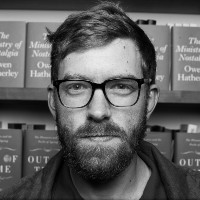
Greg Bloom
Founder
Open Referral, Miami Beach, Florida
Greg Bloom is the founder of the Open Referral Initiative, a community of practice that fosters open access to information about the health, human, and social services available to people in need. He is a visiting scholar at Indiana University’s Ostrom Workshop on the Commons. He also sits on the Technology Advisory Committee for the Gravity Project, which is facilitating the development of interoperability for client information exchange among healthcare and human service providers. Previously, Greg managed communications for Bread for the City in DC.
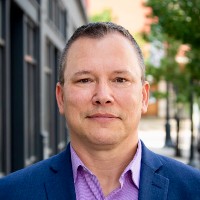
Tim Sullivan
Director
Washington 2-1-1 Network, Seattle, Washington
Tim Sullivan is the statewide director for Washington 211, the lead organization that administers the 211 information and referral system for the State of Washington. Tim received his Bachelors of Science degree from Central Washington University in 1992 and shortly after started his career in social services working for the Yakima County Gang Prevention Intervention Coalition as a program manager. In 1995, Tim was hired by the United Way of Central Washington, where he worked as the Community Impact Director for 15 years.
In 2004, Tim became involved in the issue of homelessness and helped establish the Homeless Network of Yakima County, a coalition that developed and implemented Yakima County’s first 10 Year Plan to End Homelessness. In 2006, Tim was contracted by Yakima County to develop the County’s first housing and homeless programs and later became a Senior Manager for Yakima County Human Services. In August 2016, Tim became the Statewide Director for Washington 211.
Tim is a member of the 2-1-1 National Steering Committee and chairs the SDOH Taskforce. Tim is also a founding board member of Justice Housing Yakima, a non-profit organization that is dedicated to building permanent housing for chronically homeless individuals using tiny homes. Tim makes his home in Yakima, WA with his wife Michelle of 27 years and his two children, Jessica age 22 and Ian age 13.
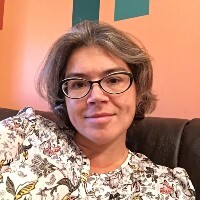
Kate Lambacher
CEO
KCL Software Solutions Inc, Burlington, Ontario
Kate Lambacher has been providing software development services to Information and Referral providers and Volunteer Centres in Canada since 1997, most notably as the developer of the software behind the OpenCIOC I&R and Volunteer Matching software project since 2002. For more than 15 years she has been assisting I&R providers to navigate successful data exchanges across systems, develop multi-tenant data maintenance systems, and create and manage data sharing agreements between many sizes and types of organizations. In addition to her work with the I&R and Volunteer Services sectors, Kate serves as a board member for the Canadian Mental Health Association Halton Region branch.
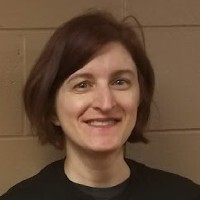
Hannah Newton
Resource Center Manager
King County 211, Seattle, Washington
Hannah Newton is the Resource Center Manager for King County 211 and the statewide database coordinator for Washington state. She has been a certified database curator since 2006. She maintains the knowledge base for the COVID-19 hotline in Washington state and is an AIRS database reviewer. Currently, she is trying not to kill all the flowers she planted since COVID as well as taking care of three cats and two children.
-
Contains 2 Component(s), Includes Credits
Everyone wears their rose-tinted glasses, viewing the world through their unique lens based on their knowledge and experiences - or Mental Maps. In this session, you will shatter those glasses and learn to challenge your assumptions and implicit bias to create a more accurate worldview.
Everyone wears their rose-tinted glasses, viewing the world through their unique lens based on their knowledge and experiences - or Mental Maps. In this session, you will shatter those glasses and learn to challenge your assumptions and implicit bias to create a more accurate worldview.
Key Objectives:
- Understand what shapes your Mental Map/Worldview
- Knowledge of the Ladder of Inference and Impact of your Mental Maps
- Expand and create more accurate Mental Maps through effective inquiry
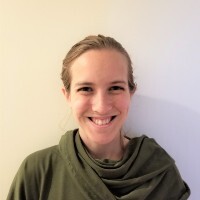
Ana Hollander
Program Development Manager
211LA, Los Angeles, California
Program Development Manager at 211 LA, Ana comes from a background in providing direct services and training for various nonprofit organizations. Ana currently leads professional development workshops with a focus on leadership skills and challenging one's own assumptions and bias. In her spare time she enjoys cuddling her dog, Buffy and reading.
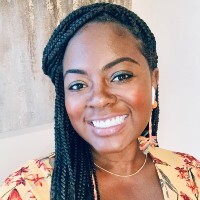
Vanessa Gentle
Learning Development
211 LA, Los Angeles, California
Vanessa Gentle was recently promoted to the Learning Development role at 211 LA. She previously filled the role as a Performance Coach exclusively for COVID-19 response.
In her spare time, she enjoys cooking vegan dishes, listening to various music genres, and exploring fun adventures with her 2 children.
